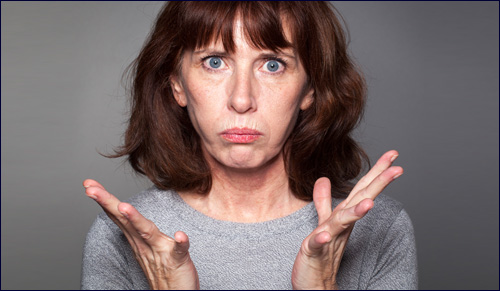 Iran’s Attack on Israel
Iran’s Attack on Israel


5 min read
It took me until my 50s before I finally realized how much my parents really cared for me, and how much they really loved me.
There is the joke, “What’s the difference between a pit bull and a typical Jewish mother?” The answer: “The pit bull eventually lets go.”
The difference between a pit bull and a typical Jewish mother: The pit bull eventually lets go.
I’ve heard people say, “My mother is the typical Jewish mother.” I have an Italian friend who says his mother is the typical Italian mother. All groups have their typical everything. But what does this mean?
My wife is not the typical Jewish mother. She knows much better than I do how to let go. She doesn’t hang on and nudge our kids to death like the stereotype suggests. That’s why they tend to confide in her more than they do me. I’m much more the worrywart. I’m much more the typical Jewish mother than she is. I’m also more annoying. That’s because my mother was much more a typical Jewish mother than my wife’s mother was.
My mother must have asked me 10,000 times when I was going out if I was going to wear a sweater. “You don’t have to wear it. Just carry it.” One time, she actually said to me, “I hope you’re smart enough to button up if it gets cold.” My mother had a great fear that the temperature could drop 100 degrees at any given moment and a new ice age would be upon us.
She also worried about me not being able to find lunch when I went out for the day. You would have thought I lived in the Sahara desert, where the next restaurant was 4,000 miles away.
I grew up in New York City, where the trains and buses run 24/7. She would always tell me that my father and she would come get me any time of the day or night if I couldn’t get home. She always worried that I didn’t have enough money to get home. “Do you have enough money to take the bus?” The bus was 25 cents.
If there were a reality show called “Extreme Worry,” my family could have cleaned up. You’d have middle-aged Jewish women and men competing with each other about who has it the worst and who has the most heartache from their families. And, of course, who has had more operations and diseases.
My mom said she was dying at least once a week and would tell me, “One day, I won’t be here anymore.” She was right about that. She’s been gone about 17 years. I miss her a lot.
I went through a period where everything she did annoyed me. I guess I was the typical Jewish son. I was in therapy for years complaining about my overbearing mother and my weak father. I spent thousands talking about how I got shafted and how I was misunderstood. My therapists never suggested that I try to understand what my folks might be going through. My mother would ask me, though. As a teenager, I couldn’t have cared less. “What about me?” I’d shoot back. It was all about me. All I could think back then was, “Why do these people have to annoy me so much?”
What I did learn from all the therapy is that I like to complain a lot. Where I fault my therapists is that they never gave me a solution. We never talked about forgiveness. They did a lot of head-shaking and agreeing with me. I’m not saying all therapists are like this, but mine were. Here I am again, complaining. Not about my parents, but my therapists.
Then one day, I lucked out. If you live long enough, it’s possible to change. Out of nowhere, I was gripped with something called empathy. It came on like a bad flu. All of a sudden I thought, “Gee, my parents probably didn’t have it all that easy. It must have been hard on them.” Then I thought, “Maybe I wasn’t such an easy kid to deal with.” When I look back at it, I admit I gave my parents a lot to worry about. Soon after this realization, I had another thought. “It must have been so hard on my parents when I moved from New York to Los Angeles.” I was an only child. My parents, not being big world travelers, must have felt a little like those parents in the old country, when their kids got on the boat to go to America. Somewhere deep down, they probably thought, “This might be the last time we ever see him.”
And so, with that thought, the love my parents had for me came flowing through. The dam had broken. I finally realized, in my 50s, how much my parents really cared for me, and how much they really loved me. I also think having my own kids made it easier for me to feel what my parents must have gone through. Hopefully, my kids won’t have to wait until they’re in their 50s to realize how much we love them. And it is more than they could imagine. But I still think Los Angeles gets cold out at night, and they should wear a sweater. I know I do.
